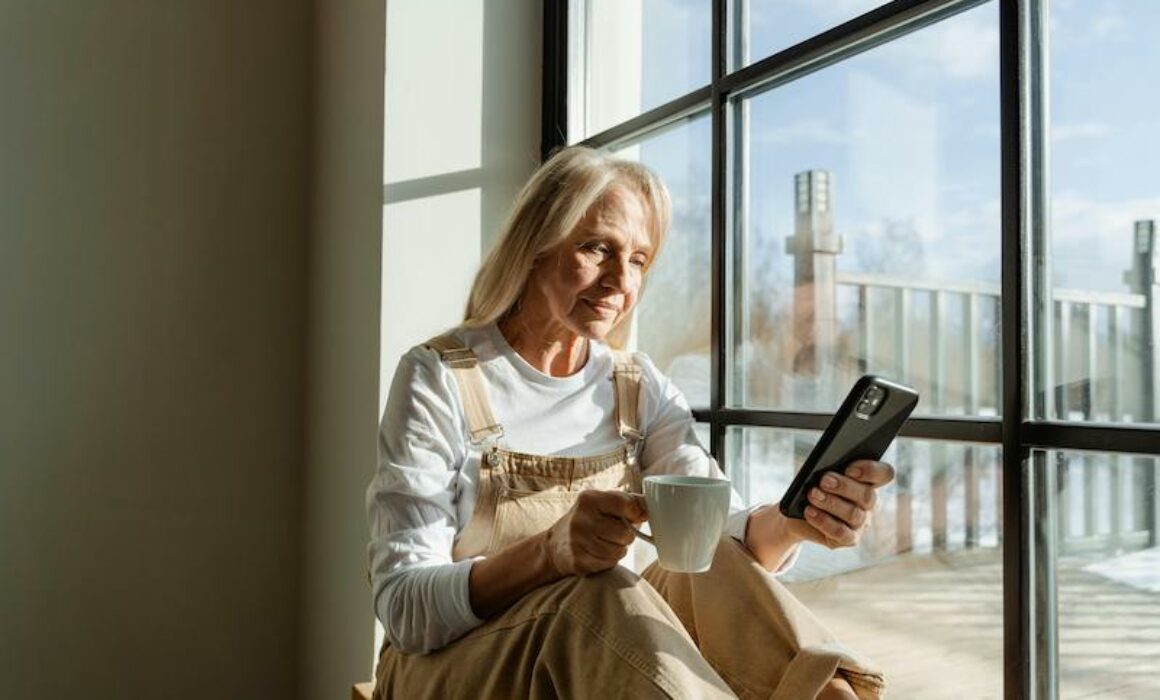
Completing cancer treatment is a significant milestone, but it’s just the beginning of your recovery. Navigating this path can be challenging, both physically and emotionally. During cancer treatment, the body undergoes immense stress and strain. This can lead to fatigue, weakness, and a variety of other health challenges.
It’s important to give your body time to rest and recuperate after treatment before diving back into your regular routine. It’s also important that you take care of your physical and emotional well-being. This includes getting enough sleep, eating a healthy diet, and engaging in gentle exercise. Rebuilding your strength and resilience needs to be gradual, and in a way that’s kind to yourself. This includes gradually increasing your activity level, returning to work or school, and reconnecting with social activities.
The recovery process takes time and patience. There may be ups and downs along the way. Be gentle with yourself and don’t put too much pressure on yourself. The important thing is to focus on your progress and celebrate your achievements, no matter how small. With time and effort, you can rebuild your health and strength and reclaim your life after cancer. This article – the third of Dr Jane Clark’s series on navigating life after cancer – focuses on recuperation and convalescence. Read on for Dr Clark’s insight and advice.
Beginning to recover and recuperate
This article is adapted by Dr Jane Clark from an article originally written by Jane and Dr Peter Harvey. See our introduction for a background on this series of articles.
It is important to emphasise that recovery is a process, not an event. It’s not something that just happens – it takes place a bit at a time – and often takes much longer than you expected and almost always takes much longer than you had hoped.
Once your treatment has finished there is often a sense of pressure to be as you were before all this happened. One of the key messages of this series of articles is to point out that this cannot happen immediately – and, as we shall see – may not happen in the way that you might have expected.
Before you can begin the main part of your recovery you need to ensure that your energy and strength (both physical and emotional) are in place for the tasks ahead. For this you need to do two things – recuperate and convalesce.
How to recuperate
It is a widely held belief, often correct, that the treatment of an illness is meant to make you feel better.
One of the many paradoxes of cancer is that, more often than not, the treatment makes you feel worse. This is not surprising – you are cut and possibly mutilated, injected with poisonous and powerful chemicals, subject to dangerous rays, all in the name of treatment.
The aggressiveness and power of the treatments are a necessary response to the power of the disease, but this very power takes its toll in other ways.
“I found going through treatment very tiring. It wasn’t just the side effects of the treatments themselves, but the back and forth to hospital appointments and the emotional energy I used up which drained me.” Emma
These interventions place enormous physical strains on the body. There is often little time to recover from one treatment before the next one starts.
The treatments themselves may make it difficult for you to sleep and eat properly – two critical parts of the body’s defence and recovery system. Some of the treatments drain your energy and resources to such an extent that it’s as much as you can do to put on the kettle. Add to this the emotional turmoil – dealing with the impact and implications of the diagnosis, the uncertainty, the upheaval, the additional burden that you feel that you are imposing on family and friends, and the loss of so many aspects of your routine.
Emotional stress can be as energy consuming as any physical activity. You also need to remember that your time in hospital may have been quite short – these stays have been reduced over the years as anaesthetics and procedures have improved – but this does not mean that the operation you have experienced was minor or that your recovery should mirror the brevity of the hospital stay.
Surgical procedures may have shortened, but our bodies haven’t yet caught up! They still need time to recover. After all that, is it any wonder that you feel wrung out and exhausted, without resources or reserves?
For quite understandable reasons people want to get back to doing the things they used to before the diagnosis but find themselves falling at the first hurdle because they simply find the whole thing too much.
However smoothly your treatment has progressed and however well you have tolerated the various indignities to which you are subjected, sometime simply to recharge and recover – to recuperate – is absolutely essential. This is the necessary foundation on which to build recovery. There is no one right way or length of time to do this. It may be a few days or a few weeks – how long will depend on your state of health before your diagnosis, your age, the intensity, frequency and length of your treatment and so on.
Recuperating is the very first step in a process of rebuilding. Take however long you feel you need. And, most importantly, give yourself permission to take this time. It might be helpful to show this article to your family, so that they also understand that you need to invest in your recuperation.
How to convalesce
This is a rather old-fashioned term, and in some ways it’s a shame that it has fallen into disuse, despite its association with bath chairs, rugs, bracing sea air and strengthening broth.
The word has a Latin root meaning ‘to grow strong’ – rather apt under the circumstances. How is this different from recuperation?
In some ways they are very similar, but the distinction is based on time. Recuperation is the immediate period following the end of treatment when you can begin to replenish you reserves of energy.
Once you have recharged your batteries, then you can begin to build up your physical and emotional strength – the process of convalescence. It can be helpful to plan a timetable of what will help you to ‘grow strong’ again. Think about what will help to rebuild your physical strength (walks, swimming, gardening, mindful movement such as yoga or Tai Chi) as well as what will nourish your mind (connections with others, reading, music, mindfulness, TV). Be kind to yourself and patient, remember that the path won’t be linear, there may be many ups and downs.
“Recovering from treatment took much longer than I had expected or anticipated. Once I’d realised it wasn’t going to happen as quickly as I’d hoped, I made sure that I was patient with myself and took things slowly.” Sara
Again, there are no set rules or guidelines for how long this can take, and the two processes merge into one another. But it is vital that you allow yourself time to re-build the foundations and recover the energy you need to start doing those things that you want to do – and, perhaps, to stop doing those things that you don’t want to do.
This is well illustrated by the woman who, once she had completed her treatment for her breast cancer asked for help to ‘sort out her job, her marriage and her cancer – and in that order.’ After eight sessions with a clinical psychologist, she had decided to change both job and husband.
Now that dramatic and planned rehabilitation programme will not be to everybody’s taste or need, but all changes – however big, however small – require energy, time and commitment – which is why you need to ensure that you have allowed yourself time to recuperate and convalesce.
You will note that the phrase ‘getting back to normal’ has not been used in this section. This is quite deliberate and because it is such a tricky issue, the topic has a section to itself (see Life After Breast Cancer: Adjusting back to ‘ordinary’ life after cancer).
Dr Jane Clark, Consultant Clinical Psychologist
Further information
The next article in this series of articles covers acceptance after breast cancer and you can read it here 4: Life After Breast Cancer: Why you might feel disappointed, not happy, after treatment.
If you’re looking for more support, Future Dreams hold a range of support groups, classes, workshops and events to help you and your carers during your breast cancer diagnosis. These are held both online and in person at the London-based Future Dreams House. To see what’s on offer and to book your place, see here.
To return to the homepage of our Information Hub, click here where you can access more helpful information, practical advice, personal stories and more.
This page was reviewed in April 2024 by the Future Dreams team.
The information and content provided in all guest articles is intended for information and educational purposes only and is not intended to substitute for professional medical advice. It is important that all personalised care decisions should be made by your medical team. Please contact your medical team for advice on anything covered in this article and/or in relation to your personal situation. Please note that unless otherwise stated, Future Dreams has no affiliation to the guest author of this article and he/she/they have not been paid to write this article. There may be alternative options/products/information available which we encourage you to research when making decisions about treatment and support. The content of this article was created by Dr Jane Clark, Consultant Clinical Psychologist and we accept no responsibility for the accuracy or otherwise of the contents of this article.
©️ 2023 Jane Clark and Peter Harvey. With quotes from the creators of the Ticking off Breast Cancer website (now Future Dreams Information Hub). All rights reserved.
Share

Support awareness research
Donate to those touched by BREAST cancer
Sylvie and Danielle began Future Dreams with just £100 in 2008. They believed nobody should face breast cancer alone. Their legacy lives on in Future Dreams House. We couldn’t continue to fund support services for those touched by breast cancer, raise awareness of breast cancer and promote early diagnosis and advance research into secondary breast cancer without your help. Please consider partnering with us or making a donation.



